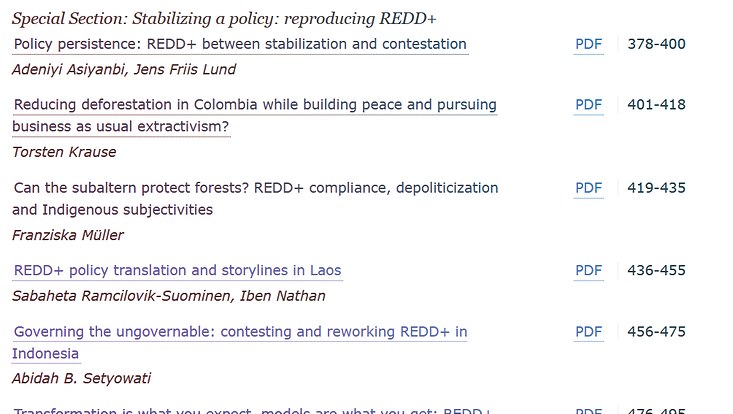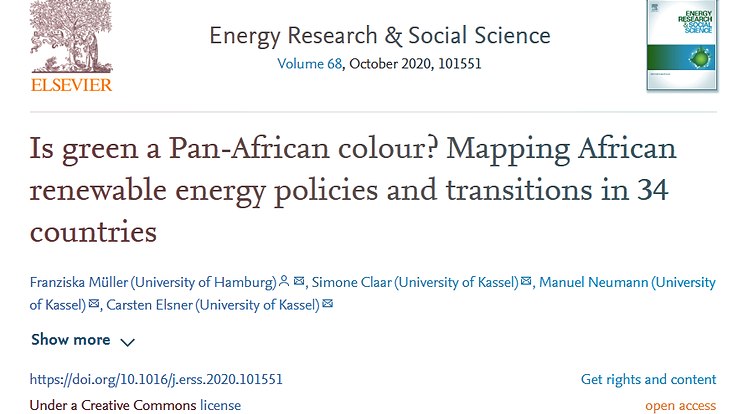Carbon-saving super heroes? REDD+, educational programmes and carbon governmentality
25 May 2020

Photo: Franziska Müller
REDD+ (Reducing Emissions from Deforestation and Degradation) is a global mechanism, which comprises several global forest protection and carbon sequestration programs, for instance under the umbrella of the Green Climate Fund, the World Bank’s Forest Investment Programme or the Norwegian NICFI Fund. Increasingly, these programs are now carried forth under the new banner of Natural Climate Solutions. While they are considered as a strategy for global emission reduction, they have also been labeled as “carbon colonialism” and especially indigenous communities are protesting against the commodification of forests as carbon sinks.
The Journal of Political Ecology Special Issue “Stabilizing a policy: reproducing REDD+” by Jens Friis Lund and Adeniyi Asiyanbi combines three strands of political ecology literature - critical policy studies, assemblage studies, and political economy. The authors argue that the persistence of policies and policy ideas manifests in a balance of the counteracting processes of stabilization and contestation, which precipitate both intended and unintended outcomes. We show how the stabilization of REDD+ itself lends stability to broader ideas of forest-based climate change mitigation.
Franziska Müller’s contribution “Can the subaltern protect forests? REDD+ compliance, depoliticization and indigenous subjectivities” problematizes subjectification of Indigenous peoples as 'planetary stewards', based on a governmentality analysis of educational resources.
https://journals.uair.arizona.edu/index.php/JPE/issue/view/1643

